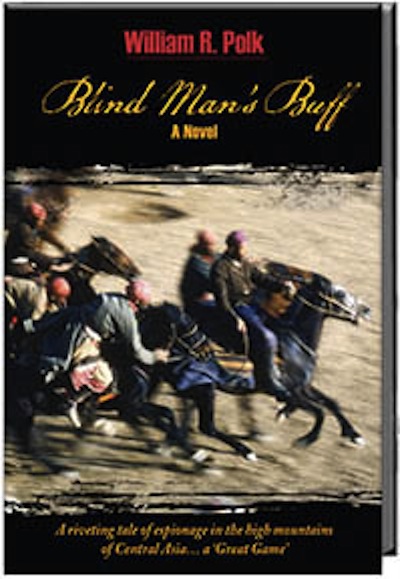(By William R. Polk)
Nearly five months have passed since the United States nearly went to war with Syria. The issue has cooled down but has not been resolved. Resolving it is not simply a matter of getting history right but is crucial to what happens next, perhaps in Iran, Iraq, Pakistan, or even the Central African Republic. Thus, we all have a major stake in learning the facts and, above all, in understanding the process that came so close to putting us into another war.
Put simply, we do not yet know the most important of the facts. We do know that on August 21 a number – varying according to the source from roughly 300 by the British and French intelligence services and Médecins Sans Frontières to 1,429 by the US government (organization unspecified) – of people were killed by chemical weapons in the outskirts of Damascus. No matter what the precise figure is, the use of chemical weapons was, as Secretary of State Kerry said, “obscene.” Although, at the worst, they amounted to only about one percent of the total casualties, they were a “trigger.”
The trigger nearly fired American action. That is, as the Chief of the US Joint Chiefs of Staff General Martin Dempsey wrote to the Chairman of the Senate Armed Services Committee, the planned aerial assault would have been “no less than an act of war…[and] the costs would be in the billions.”
Nevertheless, President Obama pressed ahead. Tensions were high, but little was done to discover and reveal to the Congress, the media or the public who did what to whom. In this situation, doubts began to be raised. Americans bombarded their representatives with pleas to keep out of another war, the English Parliament voted down its government’s support for the attack and the German government said that it would not participate. Only the French readied their fighter-bombers for the raid. At the eleventh hour, President Putin offered a way out, getting President Assad to agree to destroy the Syrian governments store of chemical weapons. And on August 31 in an abrupt about-face President Obama called off the attack.
People all over the world were shocked: President Hollande was humiliated; the people of Damascus were profoundly relieved; the English public appeared delighted; the Saudi Arabians and the Israelis were furious; and the American public was incredulous. After all, President Obama had implemented almost the same tactic in his attack on the government and armed forces of the Libyan government and in various ways the US had been trying to “regime change” Syria for years. Why the change?
Again, we simply do not know. But one new fact has come to light as a result of investigations by the Organisation for the Prohibition of Chemical Weapons and the World Health Organization and by an independent study made by the MIT Global Security Group. The UN organizations produced the weapons and the MIT group analyzed them. The conclusion is that the rockets that carried the poison gas could not have been fired from where the US government claimed they had been fired. They simply did not have the range. Secretary of State Kerry was simply wrong when he said that “Our intelligence community has carefully reviewed and re-reviewed information regarding this attack, and…We know rockets came only from regime-controlled areas…”
Separately, Seymour Hersh and I have been raising doubts about the US government charge for months. The facts simply did not add up. The identified motivations are inconsistent. But more important, it was imperative that two things were done before any action was taken. The first was for the government to take a careful look at what could be known. We have a long-proven mechanism for doing this: the CIA’s National Intelligence Council usually produces on demand a National Intelligence Estimate based on everything the 16 American intelligence agencies have found out. That was not done. The second was to share with Congress, the media and the American people this considered view. What we got were opinions from political advisers and public relations officials.
The lesson in all this is that an emotional reaction is a very poor way to go to war. As we now are seeing in other crises, we need and deserve intelligence not shooting from the hip. The crisis in Syria is still a long way from being over and new crises beckon. We need to understand this crisis so we can avoid repeating it elsewhere.
William R. Polk is the author of over a dozen books on the Middle East, and most recently a novel, Blind Man’s Bluff , set in nineteenth century Afghanistan at the time of the intrigue and espionage of the British and Russian Empires against one another known to historians as “The Great Game” for Central Asia.




 © 2026 All Rights Reserved
© 2026 All Rights Reserved